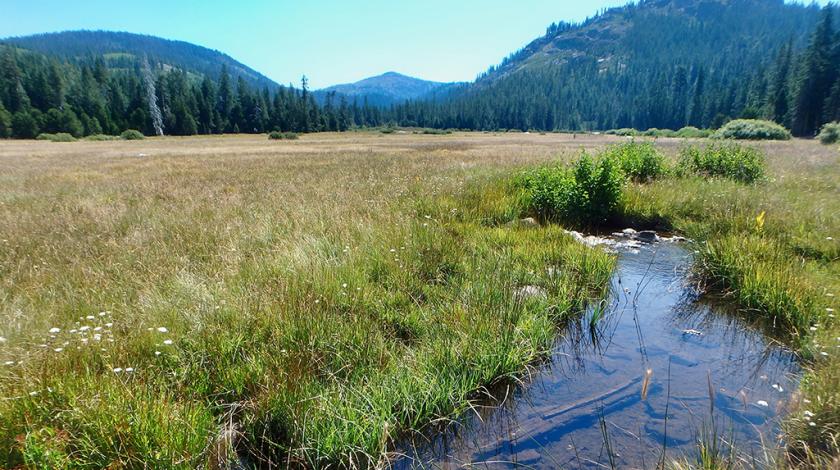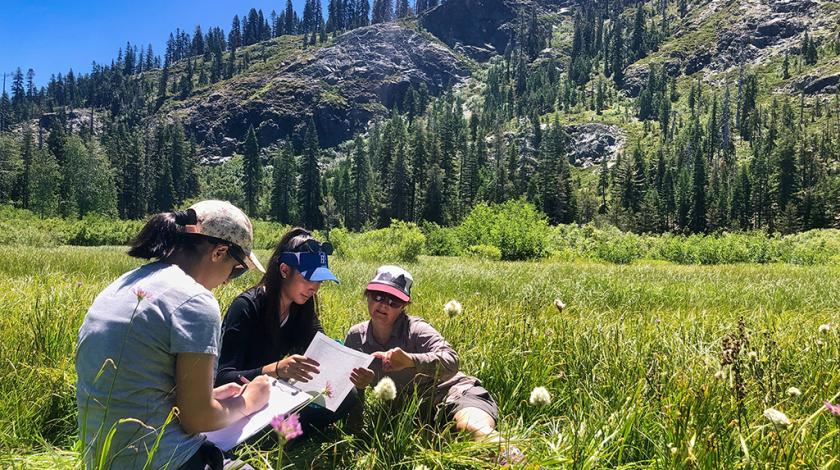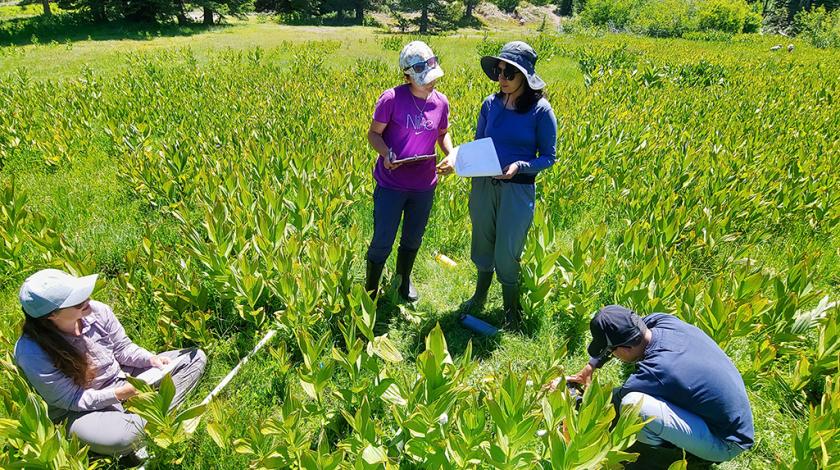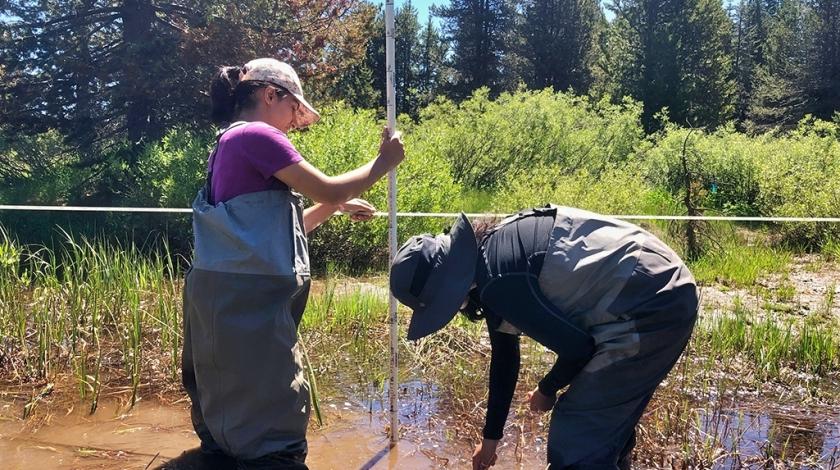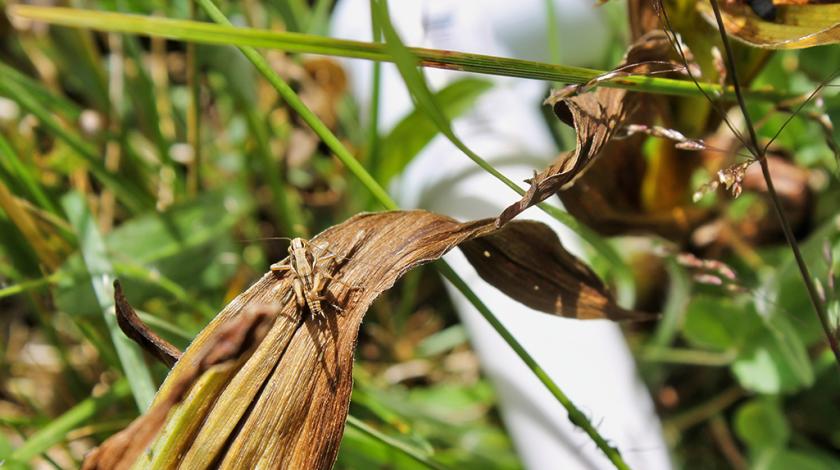Restoring Sierra Meadows: The Source of California’s Water
.

COVID Ready
This project has added safety measures to allow for responsible fielding of volunteers and field staff at this time.
Those measures include
- Proof of vaccination requirement
- Decreased overall team size to allow for physical distancing
- Face mask requirements
- Single accommodations
- Adjusted transportation arrangements
- Increased cleaning and sanitization
When reading the Online Expedition Briefing, please keep these adjustments in mind.
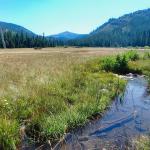
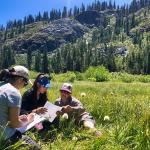
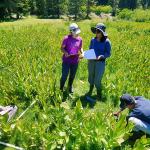

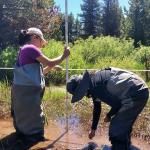

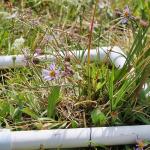
Climate change and human activities are altering California’s meadows, threatening the ecosystems that provide two-thirds of California’s water supply. Monitoring these ecosystems is critical to understanding and responding to these changes.
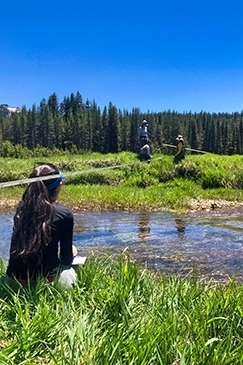
**PLEASE NOTE! This project is exclusively for Earthwatch's Girls in Science Fellowship. There are no public teams at this time.**
Each spring, the snow that has accumulated in the meadows in the Sierra Nevada Mountains slowly melts. The meadows act like sponges, soaking up and storing the freshwater. Eventually, the streams running through these fields drain the reserve, providing a steady flow of drinkable water to California’s Central Valley. But these ecosystems are being disrupted by climate change and human activities, putting this critical water supply at risk.
Grazing cattle, mining, and fire suppression have altered the sprawling fields by degrading the streams, lowering the groundwater table, and increasing their susceptibility to invasive species. In a healthy meadow, the edges are lined with aspens and only a small percentage of them have conifers. As human activities change the landscape, however, conifers—trees that outcompete aspens for water and sunlight—have begun to encroach into the meadow and within aspen stands. Aspen stands are important to the overall biodiversity of the Sierra because they support a unique assemblage of plant species. As a result, these meadows are becoming less diverse, dryer, and are more susceptible to the impacts of climate change.
You’ll join research teams in the Sierra Nevada to study this important ecosystem and understand how changes are impacting the landscape. You’ll spend your days hiking through the grassy meadows, evaluating streamlines and groundwater, and identifying tree species. This information will help scientists to assess the vulnerability of these meadows to a changing climate. You will also work with local organizations, including the South Yuba River Citizens League (SYRCL), the Tahoe National Forest, and others to actively restore these meadows in an effort to protect this important water system.
A Typical Itinerary
- Day 1: Meet, travel to the field site
- Days 2-6: Streamline assessment; groundwater measurements; tree measurements; vegetation transects; greenhouse gas and soil carbon measurements.
- Day 7: Departure
.
HOW YOU WILL HELP
.
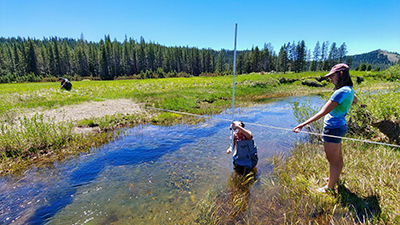
Streamline assessments
You’ll measure the water depth and flow rate of streams within the meadows.
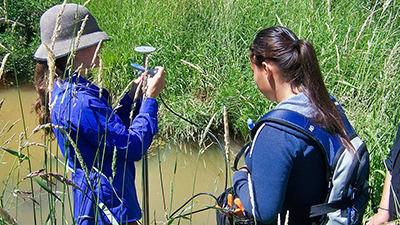
Groundwater measurement
You’ll measure the depth of water within groundwater wells to assess the area’s water table.
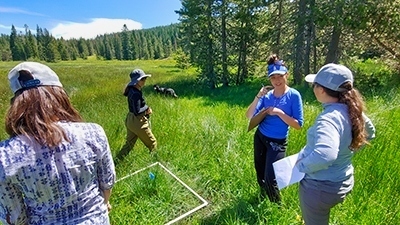
Vegetation assessments
You’ll measure the size and density of tree stands and record the presence of flower and grass species in the meadows.
Field conditions and research needs can lead to changes in the itinerary and activities. We appreciate your cooperation and understanding.
.
HAVE A QUESTION?
If your question is not answered by one of our FAQs, please reach out to us and we will answer your question as soon as we can.
.
GET EARTHWATCH NEWSLETTER
Bi-weekly announcements, new expeditions, and updates on our impact around the globe.
.
.
.
